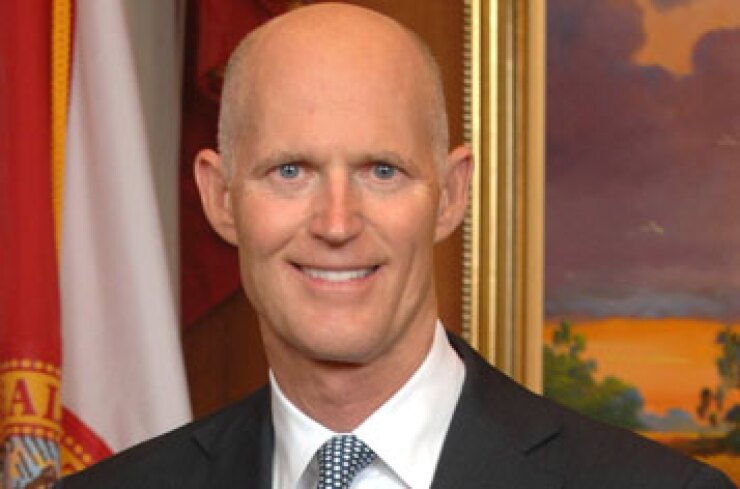
BRADENTON, Fla. – Florida legislators have authorized the state’s first municipal bond securitization program.
The Utility Cost Containment Bond Act received final passage Thursday in the Senate with an amendment that broadens the number of entities that can take advantage of the financing program designed to lower borrowing costs.
House Bill 347 would allow certain issuers to securitize bonds with irrevocable charges on customer’s utility bills. It only applies to water and sewer projects.
The bonds, backed by customer charges, are issued by a bankruptcy-remote special entity and typically earn triple-A ratings that can lower financing costs.
HB 347 now goes to Gov. Rick Scott, who some say may question the necessity for creating a new financing mechanism because he has openly opposed the use of debt.
An early version of the bill only allowed an intergovernmental utility authority to take advantage of the program.
Currently, only the Florida Governmental Utility Authority complies with that definition, and FGUA has pushed for the securitization bill for several years.
The bill was amended on March 2 to also allow a city or county to join with a municipal retail water or sewer agency to create a new authority that would issue the bonds.
At least one member of the new authority must provide services to at least 75,000 customers.
If Scott signs the bill into law, a bond attorney who asked not to be identified said that confusion over the definition of a customer may need to be clarified.
Sen. John Legg, R-Lutz, said during discussion on the HB 347 that the definition of a customer was intended to apply to “a population” of 75,000 or more, which would permit about 55 water and sewer systems serving 10 million customers in Florida to use the financing program.
Water and sewer utilities typically define a customer as an account, and not the total population served, the attorney said. One customer or account may serve more than one person such as an apartment building.
The definition of a customer may need to be clarified in a future amendment or through a bond validation, the attorney said.
Some supporters of the legislation wanted more issuers qualified to use the new bond program.
“There are several cities that are looking to do a regional authority one day and would like to have the same bonding options,” Sen. Darren Soto, D-Orlando, said before the final vote.
Soto said he would like to see the Legislature expand the program to include more issuers next year.
The Florida Legislature was scheduled to adjourn Friday.





